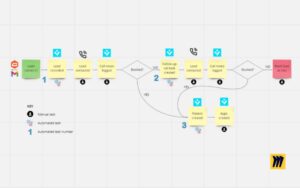The Personal Development Blog

Parenting and CEO Morning Routines
Balancing executive leadership with active parenting is one of the greatest modern challenges. Early mornings often become the frontline — where career ambition meets family responsibility.
But many high-performing CEOs are proving that you don’t have to choose between leadership and love. You can lead your business and be present for your children — with the right systems in place.
This blog explores the parenting success habits and productive parenting routines that allow you to own your morning without sacrificing connection. You’ll learn how to design a rhythm that supports CEO family balance — one intentional hour at a time.
Why Morning Is the Most Powerful Time for Parents and Leaders
The early hours set the tone for everything: your energy, your mindset, your connection.
When you prioritise meaningful habits before the demands of the day hit, you build trust with your children and create mental clarity for work.
Benefits of Morning Connection:
- Establishes emotional security for your child
- Builds predictable routines that reduce stress
- Allows focused attention before distractions increase
- Sets a calm, confident tone for both work and family
- Reinforces the values you want to pass on
Being present in the morning pays off long after the door closes.
What Successful CEOs Do Differently in the Morning
High performers don’t “fit in” parenting — they build it into their routine. And they keep it simple, consistent, and intentional.
1. They Time-Block for Family
Just like meetings and workouts, family time goes on the calendar. No excuses, no overlap.
2. They Start Earlier (or Prepare Smarter)
Whether it’s waking before their kids or preparing the night before, they protect the first hour.
3. They Focus on Quality, Not Quantity
You don’t need an hour of playtime — you need 10–15 minutes of undivided attention.
4. They Delegate and Collaborate
They share routines with partners, nannies, or older kids. It’s not solo — it’s coordinated.
5. They Stack Habits
They combine breakfast with learning, dressing with chatting, or journaling with family reflection.
These are productive parenting routines that evolve with age and schedule — but always serve connection.
Sample CEO Family Morning Routine (60 Minutes)
Here’s a structured flow that prioritises leadership and parenting side by side:
| Time | Action |
| 5:30–5:45 AM | Wake, hydrate, and quick stretch (solo) |
| 5:45–6:00 AM | Review schedule or journal intentions (solo) |
| 6:00–6:30 AM | Breakfast and connection with children |
| 6:30–6:45 AM | Assist with school prep or family discussion |
| 6:45–7:00 AM | Drop-off or walk together / morning goodbyes |
| 7:00 AM | Begin focused work window |
You can adapt this to a 30-minute or 90-minute version — depending on your lifestyle.
Parenting Success Habits That Strengthen Morning Flow

Routines aren’t just tasks — they’re culture.
Try These Habits:
1. Morning Check-Ins
Ask:
- “How are you feeling today?”
- “What’s one thing you’re looking forward to?”
It takes 60 seconds. The trust lasts years.
2. Set Family Intentions
Ask each family member what word or goal they want to carry for the day. This builds emotional intelligence and shared purpose.
3. Include Your Children in Prep
Give them simple roles: packing lunch, laying out clothes, checking the calendar. It creates responsibility, teamwork, and structure.
4. Create a Send-Off Ritual
A high five, a phrase, a secret handshake — anything repeatable. These rituals create belonging and confidence.
5. Reflect on Wins at Dinner
Tie the morning to the evening by asking: “Did you do what you said this morning?” It creates a loop that builds awareness and accountability.
CEO Family Balance: Stories from the Top
These leaders model how intentional structure supports both business and family.
Barack Obama
Kept breakfast and school drop-offs sacred — even during his presidency. His belief: if he missed mornings, he lost the best time with his daughters.
Whitney Wolfe Herd – CEO, Bumble
Rearranged meetings to create a softer morning that includes her son. Speaks about balancing tenderness with vision.
Dax Shepard (actor + podcast host)
Structures his workday around early school routines. Believes quality parenting time builds better work focus later in the day.
Sheryl Sandberg – Former COO, Facebook
Made sure to be home for dinner and set limits on morning chaos by prepping the night before.
These examples aren’t about perfection — they’re about consistency and clarity.
What Happens When You Get Mornings Right

You build connection before conflict
Start the day on your child’s team.
You feel grounded before meetings
Connection helps clear emotional clutter.
You reduce “working parent guilt”
You’re showing up — on purpose.
You teach your children how success includes family
Not as a separate part of life, but as the foundation.
This is time management success that includes the things that matter most.
How to Prepare the Night Before
Your morning wins are made the night before. Here’s how to make it seamless:
Evening Checklist:
- Review your next day’s meetings
- Prep bags, clothes, or lunch items
- Charge devices and reduce digital clutter
- Set your journal, planner, or water where you’ll see it
- Check in with your partner about schedule shifts
- Sleep by a consistent time
Your evening discipline becomes your morning freedom.
Building a System That Grows with Your Family
Children’s needs evolve — your routine should too. Here’s how to adapt without losing your rhythm.
Infants and Toddlers:
- Focus on calming start (light, music, smiles)
- Take turns with your partner
- Use 10-minute bursts of connection between tasks
School-Age Children:

- Engage in conversations over breakfast
- Ask goal-focused questions
- Give them mini checklists for prep
Teens:
- Respect their independence while staying involved
- Use car rides or shared tasks for informal bonding
- Keep gratitude and check-in rituals short but real
The routine is flexible — the presence is non-negotiable.
Common Pitfalls to Avoid
Even great intentions fall short without support. Avoid these common mistakes:
Doing everything yourself
Delegate or rotate roles. You’re not proving anything by being exhausted.
Planning but not protecting time
Don’t let early emails or calendar creep steal your family window.
Expecting perfection
Some mornings are messy. Progress over perfection.
Ignoring your own energy
If you’re depleted, you can’t lead anyone — at home or work.
Blending Productivity and Presence
Morning routines don’t need to be strictly business. You can lead, love, and launch your day with structure and softness.
How to Combine Productivity with Presence:
- Meditate while your child eats breakfast nearby
- Listen to an educational podcast together on the school run
- Journal your goals while your children draw or write theirs
- Align calendars weekly to reduce surprises
- Celebrate small wins before the workday begins
This is CEO family balance done with intention.
Leadership Starts at Home
As a CEO and a parent, your mornings are sacred. They shape your mindset, your family culture, and your leadership tone for the day.
With the right parenting success habits, you don’t have to choose between performance and presence. You can lead teams and raise children — not through constant hustle, but through productive parenting routines built on clarity, connection, and care.
So tomorrow morning, don’t just launch into your schedule. Wake with purpose. Lead with calm. And be present for the people who matter most.









